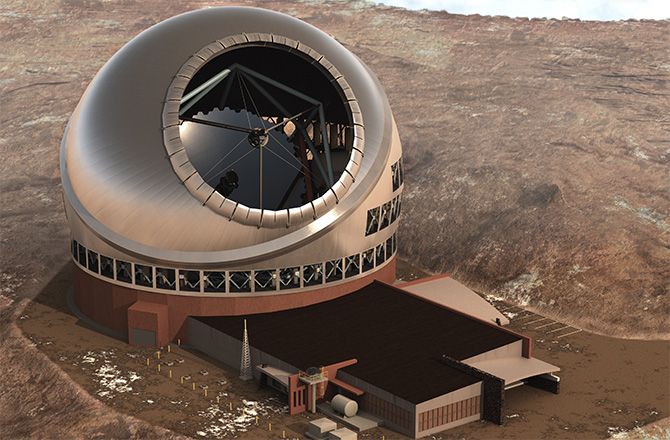HONOLULU, Hawaii – The Supreme Court of Hawaii denied on Wednesday the building permit for the Thirty Meter Telescope (TMT) project, which was proposed to establish atop Mauna Kea, the highest point in the state of Hawaii and an icon to astronomers and Native Hawaiians.
However, the Thirty Meter Telescope International Observatory Board of Directors affirmed that they would insist on pressing ahead for its bid for permission.


“We thank the Hawaii Supreme Court for the timely ruling and we respect their decision. TMT will follow the process set forth by the state, as we always have,” as Board of Directors Chairman Henry Yang declared in a statement. “We are assessing our next steps on the way forward. We appreciate and thank the people of Hawaii and our supporters from these last eight-plus years.”
In 2013, the Hawaii’s Board of Land and Natural Resources made a mistake by approving the permit because protestors didn’t have the chance to emit their opinion on the issue, as the Supreme Court wrote in a 58-page opinion. Even when protestors did have the right to a contested hearing, the board accepted the TMT building project before the hearing was actually held. Therefore, the permit had to be finally denied.
In November this year, the court temporarily prohibited further construction of the telescope after Native Hawaiians argued that the project would harm the sacred lands. They even blocked roadways in order to raise their voice against the project, which is a collaboration between the United States, Canada, India, China, and Japan. Universities and Institutions from those nations had been waiting for over a decade before the construction began in 2014.
The point of Mauna Kea was chosen by directors of the TMT because its high altitude presents low pollution and its unique air currents provide some of the clearest skies in the entire world. Nevertheless, Native Hawaiians believe that same spot is actually a sacred home of several deities and therefore should be only used for religious purposes.
Environmental activists have also protested against the project, since it would cause serious ecological impact. With 180-foot high and a cost of $1.4 billion, the astronomical observatory would be the highest and second largest Extremely Large Telescope on Earth, certainly outweighing the 13 telescopes that have been built on the Hawaiian astronomical reserve by the University of Hawaii since the 1960s, according to Discovery.
Source: Reuters
